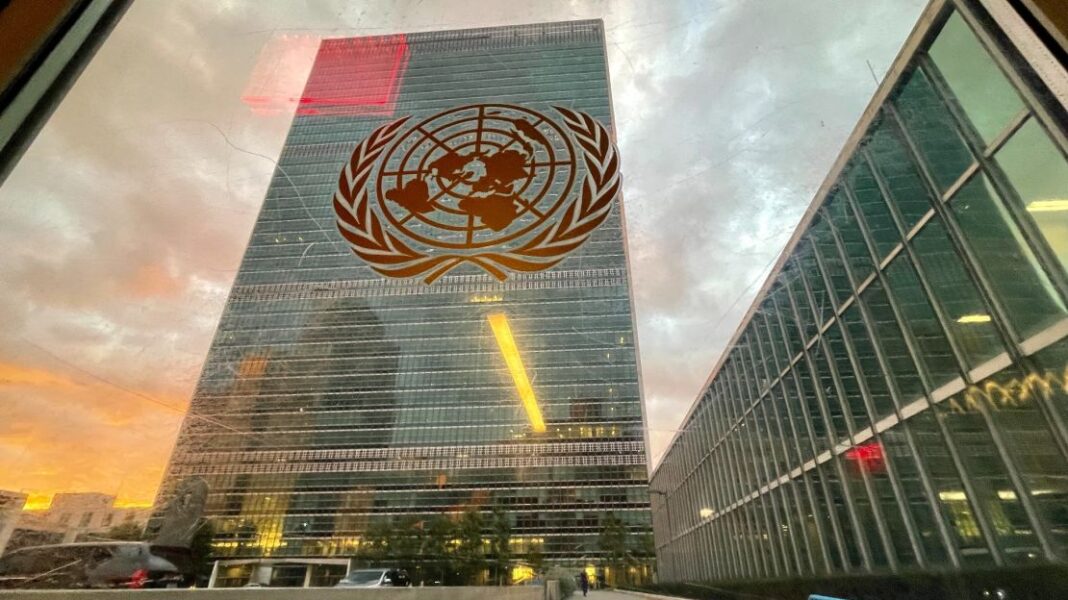Cuba maintains its demand for an end to the United States’ policy of maximum pressure, less than a month before the Republican Donald Trump assumes the presidency.
This demand was reaffirmed by more than 500,000 residents of Havana, representing the people of the island, with a march led by Army General Raúl Castro and President Miguel Díaz-Canel that passed by the US Embassy.
The mobilization demanded the lifting of the blockade imposed on Cuba by the United States for more than six decades, which has been tightened to unprecedented levels in recent years, and the removal of the island from the State Department’s list of countries that allegedly sponsor terrorism.
At the start of the popular parade, Cuban President Miguel Diaz-Canel stressed the fact that the current US administration has not reversed the policies of his predecessor, Donald Trump (2017-2021), as promised during his presidential campaign.
With the implementation of the 243 additional measures and the maintenance of Cuba on the list of countries that sponsor terrorism, Biden is disciplinarily and cruelly following the policy that Trump approved during his term in office, he said.
He stressed that to point to Cuba as a state that supposedly sponsors terrorism is false and immoral to say the least, wherever the accusation comes from, but it is doubly so when it comes from US territory.
From there, he denounced, paramilitary groups that organize, promote and finance terrorist actions against social and economic structures in Cuba are currently being trained.
Cuba’s continued inclusion on this list and the tightening of the blockade policy are actions taken against the Cuban people that must stop now, he said.
He affirmed that Cuba does not profess the slightest feeling of hatred or animosity towards the American people but is opposed to the efforts of the US government to take away the island’s sovereignty, independence and socialism, in the face of which, he said, it will always find rebellion and intransigence.
He recalled that his country has extended its hand to all the governments of the United States since the triumph of the Revolution until today, always in terms of a serious, respectful and equal relationship.
Against the plan of US imperialism and its attempt to impose itself on Cuba by force or seduction, we will march now and always, the president remarked.
Similar activities to the one in Havana took place simultaneously in the rest of the country’s provinces.
Cuba open to have respectful relations with the US
President Miguel Diaz-Canel stressed that Cuba is open to establish respectful relations with the US, saying that Cubans have no animosity against the American people.
Diaz-Canel conveyed Havana’s stance both in his closing speech at the year’s last session of Parliament and at a rally in front of the US Embassy before a massive march that passed by the diplomatic headquarters in demand of the end of the economic blockade and the removal of Cuba from the list of countries that sponsor terrorism.
It has been the island’s position since the historical leader of the Cuban revolution Fidel Castro’s time, but successive US administrations have denied such a possibility except Barack Obama’s that pushed forward a rapprochement in bilateral relations that proved beneficial for both countries.
However, after two years in the White House then President Donald Trump did away with all steps Washington and Havana took to dissipate tensions and look for ways to improve their relations.
Diaz-Canel said that Cuba is willing to talk and foster relations of respect and equality with the United States but will not allow any attempt at interference in its internal affairs.
That stance is well known and should not surprise anyone, he pointed out on the closing day of the 4th Ordinary Session of the National Assembly, which debated key issues and mapped out plans to encourage economic growth.
“We will remain open to relations with the people of the United States, (…) trying to avoid the harsh prohibitions that the Government of that country imposes on its own people in order to prevent their natural ties with a worthy and friendly neighbor in the absurd attempt to keep them from knowing the true Cuba,” he stressed.
On Cuba’s international relations, the Head of State pointed out that despite efforts by Washington to isolate it, Cuba was admitted as an associate member of the BRICS, “a novel instance of agreement and cooperation that brings together a significant economic, productive, technological, population, territorial and great natural wealth potential,” he added.
The president added that Cuba maintains very good relations and shares similar purposes with all the member countries of the group.
He recalled that Cuba also participated in the celebrations that took place in Moscow on the 79th anniversary of the defeat of fascism in Europe, “a contest in which the Russian people played a decisive role, with whose government we have continued to strengthen bilateral relations,” he went on to say.
Regarding Cuba’s international ties in 2024, Díaz-Canel noted that the Caribbean Island has received support and strengthened fraternal relations with China, Vietnam and Laos, defined the potential to increase the economic-commercial relationship with the Eurasian Union and achieved important advances in its ties with the countries of the Gulf Cooperation Council.
He highlighted the nearly unanimous rejection by the international community of the economic blockade imposed by the United States, which was evident at the United Nations General Assembly, a scenario in which the demand of numerous governments in favor of removing Cuba from State Sponsors of Terrorism (SSOT) list was also made evident.
In our America, he added, “we continue to bet on the indispensable integration and are committed first of all to the Bolivarian Alliance ALBA-TCP, (…) further strengthening the historic relations of friendship, solidarity and cooperation that unite us in the common fight against the aggression of the empire.”
The dignitary expressed his support for Nicaragua and the work of the Community of Latin American and Caribbean States (CELAC, in Spanish), whose members signed in Havana the declaration of the region as a zone of peace.
Cuba’s foreign policy, he stressed, continues to rest on positions of principle, on the anti-imperialist struggle, on the defense of peace, on the promotion of solidarity and internationalism, on the search for relations of friendship and cooperation with all countries. (PL)



































